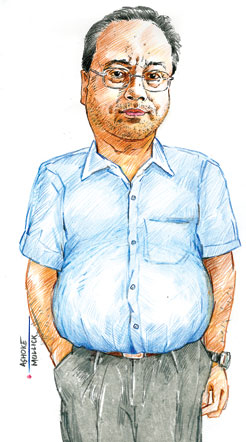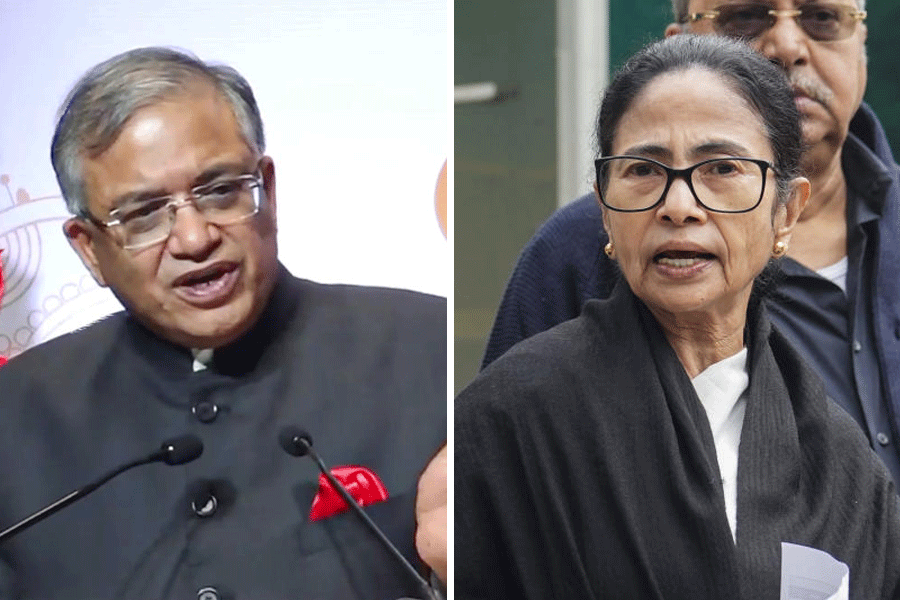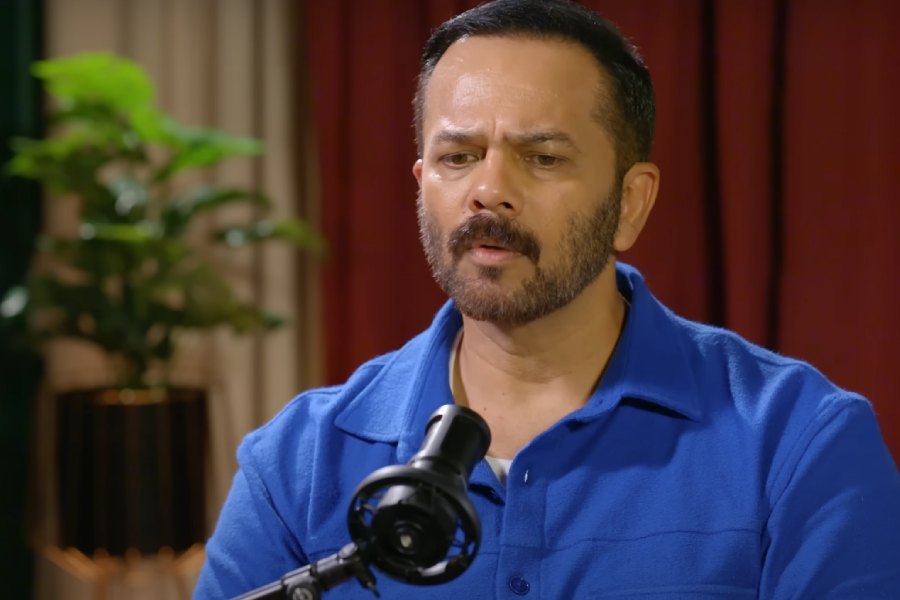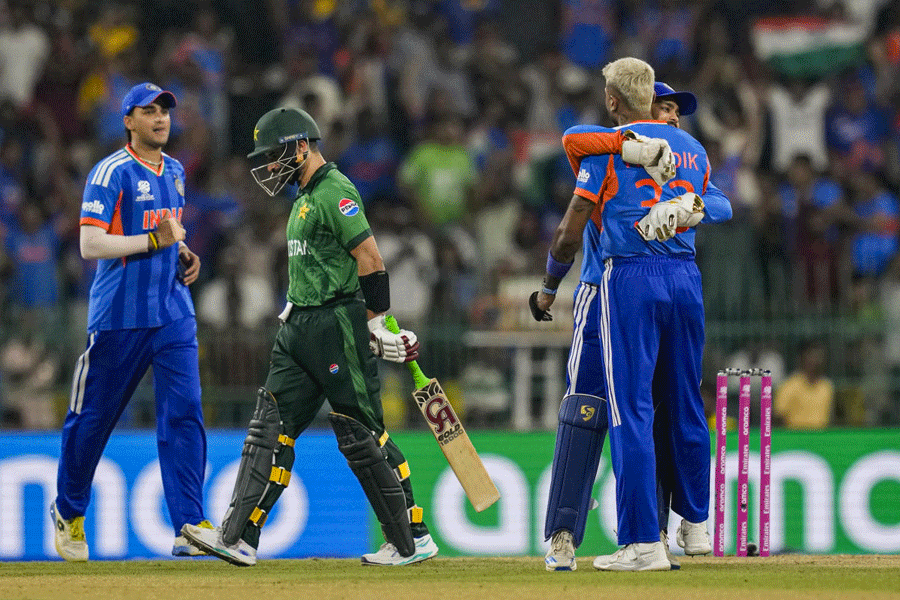 |
He has hit the headlines in India over the years, first as the canny brother of a corporate marauder, then as a litigator who fought legal battles galore. Now, decades later, Kishore Rajaram Chhabria is making waves again — he may be in talks to merge his liquor company with another one.
For those who don’t follow the business news, an introduction.
Kishore is the only brother of Manohar (Manu) Chhabria, the Dubai-based takeover tycoon who had acquired Calcutta-based liquor giant Shaw Wallace in an overseas deal from the Malaysia-based Sime Darby in 1983. The peripatetic marauder would go on to rock the Indian corporate world, taking over a string of Indian companies in the mid-to-late 1980s and alarming Indian industrialists — so much so that a delegation of them met then finance minister S.B. Chavan to complain about the raider, and many sneered at the trade origins of the brothers — before dying in 2002 at the age of 56.
Then, Kishore was the slim, 30-something, street fighter Manu had brought from London, where he headed the UK arm of Manu’s Dubai-based Jumbo Electronics, to handle the fierce resistance put up by then Shaw Wallace’s professional head S.P. Acharya to the takeover. “Acharya was giving us a tough time in Shaw Wallace. Manu could not come to India because there were some Fera (Foreign Exchange Regulation Act) cases pending against him, thanks to Acharya,” Kishore explains.
As Manu laid siege to company after company, it had been widely believed that his brother owned shares in his empire, till Manu made it amply clear that this was not the case.
Yet Kishore is now chairman of the Rs 1,836 crore, privately held (he holds most of the shares) liquor major Allied Blenders & Distributors (ABD). The story of how he became an industrialist in his own right is complicated. He has been portrayed in the media as someone who walked off with his brother’s company, then ganged up with liqour baron Vijay Mallya against his brother and finally attempting to gain control of a Mallya company. But Kishore has a different tale to tell.
Now 58, Kishore is more portly. He’s given up exercising, thanks to a knee problem. His hairline is receding. He has stubble on his face, because he shaves less frequently, thanks to a blood thinning tablet he takes. He has blood pressure and diabetes. With his company run by professionals, he has time to think — and holiday.
We’re at the plush ABD office on the second floor of a Malabar Hill building in Mumbai. The ABD chairman lives on the 11th floor. His table is piled with files. We sit on a leather sofa and Kishore plies me with questions about the media.
He is more relaxed than ever. His 20-year legal battles, first with brother Manu and then with Mallya, have ended. The last of the court cases against him were withdrawn in September last year, thanks to an out-of-court settlement with Mallya.
He is said to be in talks with the Maharashtra-based Tilaknagar Industries, makers of a prominent brandy and other spirits, on a merger of his firm with it. On its part, Tilaknagar Industries has told the stock exchanges that media reports on this are speculative, that various companies have been or are exploring or discussing business associations with it and that these may or may not fructify. But if any merger goes through, the combined entity would clock sales of over Rs 2,400 crore — almost the size of Manu’s empire when he died.
That’s not all. ABD’s Officer’s Choice whisky is among the top 12 largest selling spirits brands in the world, as testified to by more than one international wine and spirits magazine. The whisky, which accounts for some 85 per cent of ABD’s sales, is exported to Africa and Australia and could be exported to the US too.
We first met some 28 years ago, during the height of the Shaw Wallace war. Inevitably, our conversation veers towards the past. Kishore had been managing director of Shaw Wallace for five years, from 1987 to 1992, after his brother acquired it. What was running Shaw Wallace like? Did he imbibe anything from the experience? Does he regret his estrangement from his brother? What triggered their split? Why did he get into a brawl with Vijay Mallya? And what was his early life like?
On his years at Shaw Wallace, he says, “Industry, liquor — all this was new. Before that, we were merely traders and exporters of electronics goods.” He’d never run a large company before. “Shaw Wallace was an institution, a very structured organisation. It had a hierarchy,” he adds. He learned the liquor business, and to delegate.
Life in Calcutta was relaxed. But the Sindhi businessman’s wife and two daughters (now married to businessmen) continued living in Mumbai and he used to wing his way to Mumbai every Saturday, flying back every Monday.
Kishore has never publicly spoken about the real reasons for his strained relationship with Manu, who was nine years older than him. Part of the problem was Manu’s wife, Vidhya, he says. “His wife never liked me and my family.” He tells me the other reasons for their dispute.
A bit of what he says can’t be printed, but the brothers clearly disagreed on several matters. According to Kishore, Manu was a suspicious man and company executives carried tales about Kishore to him during Kishore’s Shaw Wallace stint. There were disagreements over money, about shifting Kishore to Dunlop, which Manu had taken control of (Kishore didn’t want to move to the tyre company) and there was a tussle over BDA, a company that Kishore and Manu’s father and uncle had bought from a businessman because it had a licence to produce liquor. Manu claimed that BDA was a Shaw Wallace company, but Kishore says, “I had an agreement in writing with Manu that BDA would be mine. It was given to me in 1990 and I was its managing director till 1992.”
Kishore implies that Manu coveted the company because Officer’s Choice, a whisky that Kishore had launched after BDA was acquired, was flourishing. Shaw Wallace and Manu filed cases against him. With Manu no longer alive, his version of events can’t be ascertained.
Does he regret the break with Manu? Emotionally, yes, he replies. “Surprisingly, though we were litigating, we were still close to each other. I’ll give you a typical example of a meeting in Dubai. It would start at 11am. He would bang on the table, screaming and shouting till 1pm. Then, we’d go out for lunch, discuss old times, the fun we had, laugh, come back at 3.30-4 and start again. It was a very strange relationship.”
The rift with his brother extended to his brother’s family too. At Manu’s cremation in Mumbai, which I attended, Kishore stood isolated, cold shouldered by the late tycoon’s family, though the two brothers were in the process of making up. Even today, the two families don’t meet.
The brothers started life on Mumbai’s Lamington Road, where the family had an electronics shop. Kishore was adopted by his uncle, though they all lived under the same roof as a joint family. Both brothers spent time at the shop, Kishore starting when he was 16, after passing out of school and while attending college. Manu, meanwhile, left for Dubai in 1973. “He was ambitious, restless,” explains Kishore. The family used to export electronics items to Dubai, and one of the Arab importers had invited Manu to partner him, after a meeting at New Delhi’s Oberoi Hotel. Kishore joined his brother in Dubai for two years, heading Julfar Trading, a building materials company Manu had set up, before returning to Mumbai in 1977.
Six years later, Manu called on his brother to help take over Shaw Wallace. “My understanding with him was that I’d help take over Shaw Wallace and go back to London. In March 1987, we took over Shaw Wallace and I went back to London to continue running Jumbo Electronics in the UK,” says Kishore. But Jumbo Electronics consumed a lot of Manu’s time, and so he brought his brother back to Shaw Wallace as managing director in June 1987.
After the split with Manu, Kishore joined hands with liquor baron Vijay Mallya. “I was foolish enough to think that my enemy’s enemy would be my friend. Manu had become my enemy and his enemy was Mallya.” Kishore agreed to bring BDA into Mallya’s kitty in exchange for half of Mallya’s 51 per cent equity stake in Herbertsons, a Mallya company. Kishore says he was to be vice-chairman of Herbertsons, play an active role in the management and that Mallya had given him a letter to this effect. He shows me the letter. “I don’t think he had any intention of allowing me to play an active role. When I tried to assert myself, he was quite upset about it,” says Kishore. Kishore says that Mallya started buying Herbertsons shares from the financial institutions to raise his stake in the company and that he, Kishore, bought shares from the market. A war then erupted, in the Company Law Board and the courts. “It started in 1995 and we settled in 2005,” says Kishore, who walked away with about Rs 140 crore. A Mallya company spokesman declined to comment on the matter.
How much did Kishore then spend in legal fees? “Don’t ask,” exclaims Kishore. Did he ever despair? “Many times,” he replies. And did he ever think of giving up the fight? “Many times,” he responds. In any event, Kishore then carved ABD out of BDA.
And what lessons has he learned from his late brother’s efforts at building an Indian business conglomerate? After Manu’s death, his family sold his Indian companies. His Rs 2,500 crore empire disintegrated.
“I learned a lot from Manu’s mistakes. He never created a succession plan. And he never trusted anyone. That was his biggest mistake. You have to trust people. If you trust 10 people, six may cheat you but four will repay your trust,” declares Kishore.
So does he have a succession plan in place? Kishore doesn’t proffer a clear answer, but his son-in-law has been inducted into the company. And what does he intend to do with ABD? “I want to make it one of the most admired companies in India, by converting it into an institution,” he replies simply. And what will this involve? Setting high standards of corporate governance, a lot of hard work and foresight, he acknowledges.
If he pulls that off, Kishore may do what his brother eventually couldn’t — establish a business that outlasts him. Let’s toast that, we say.










